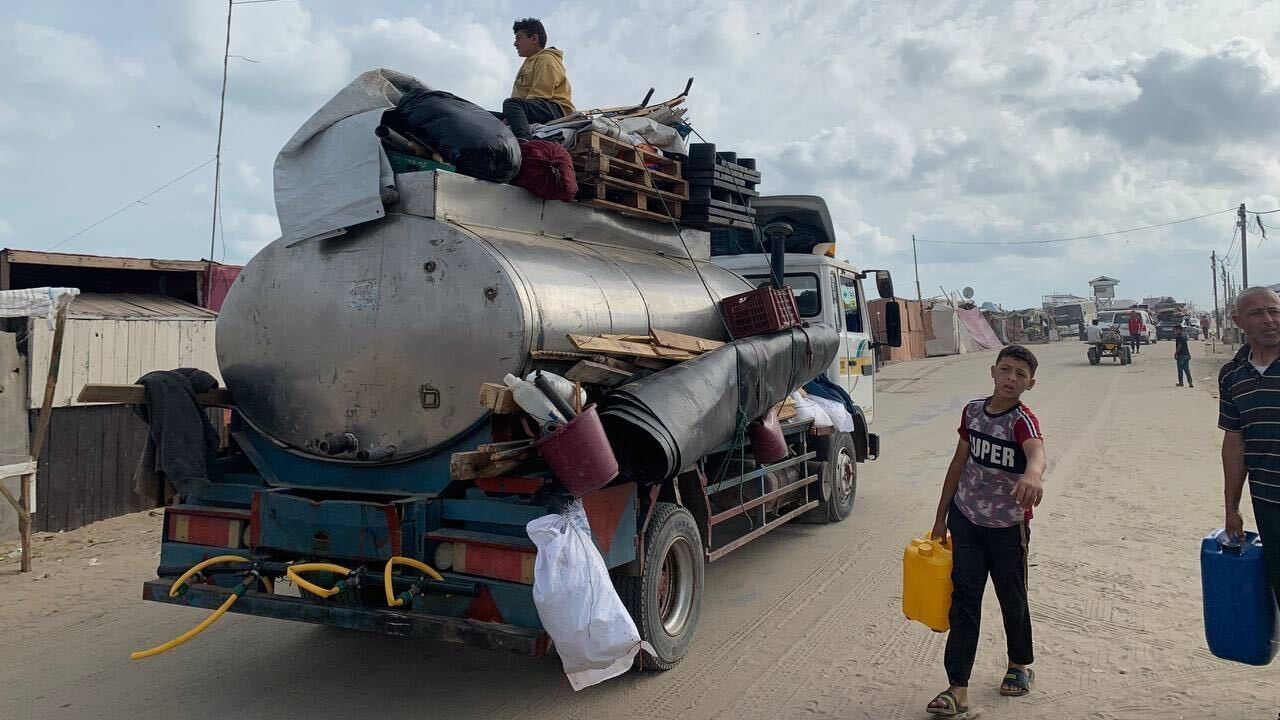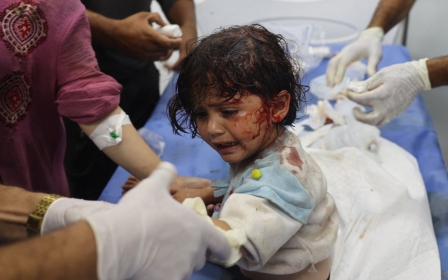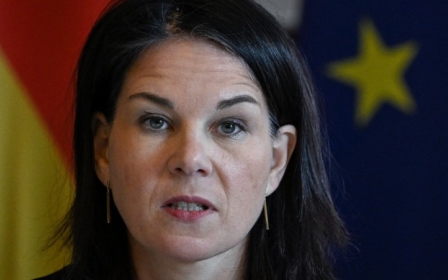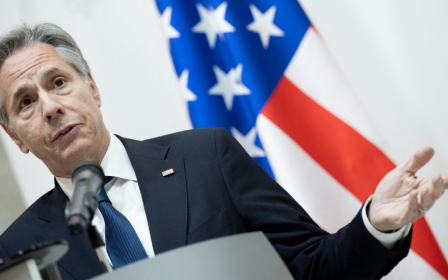War on Gaza: Mass exodus from Rafah as Israel presses assault on southern city
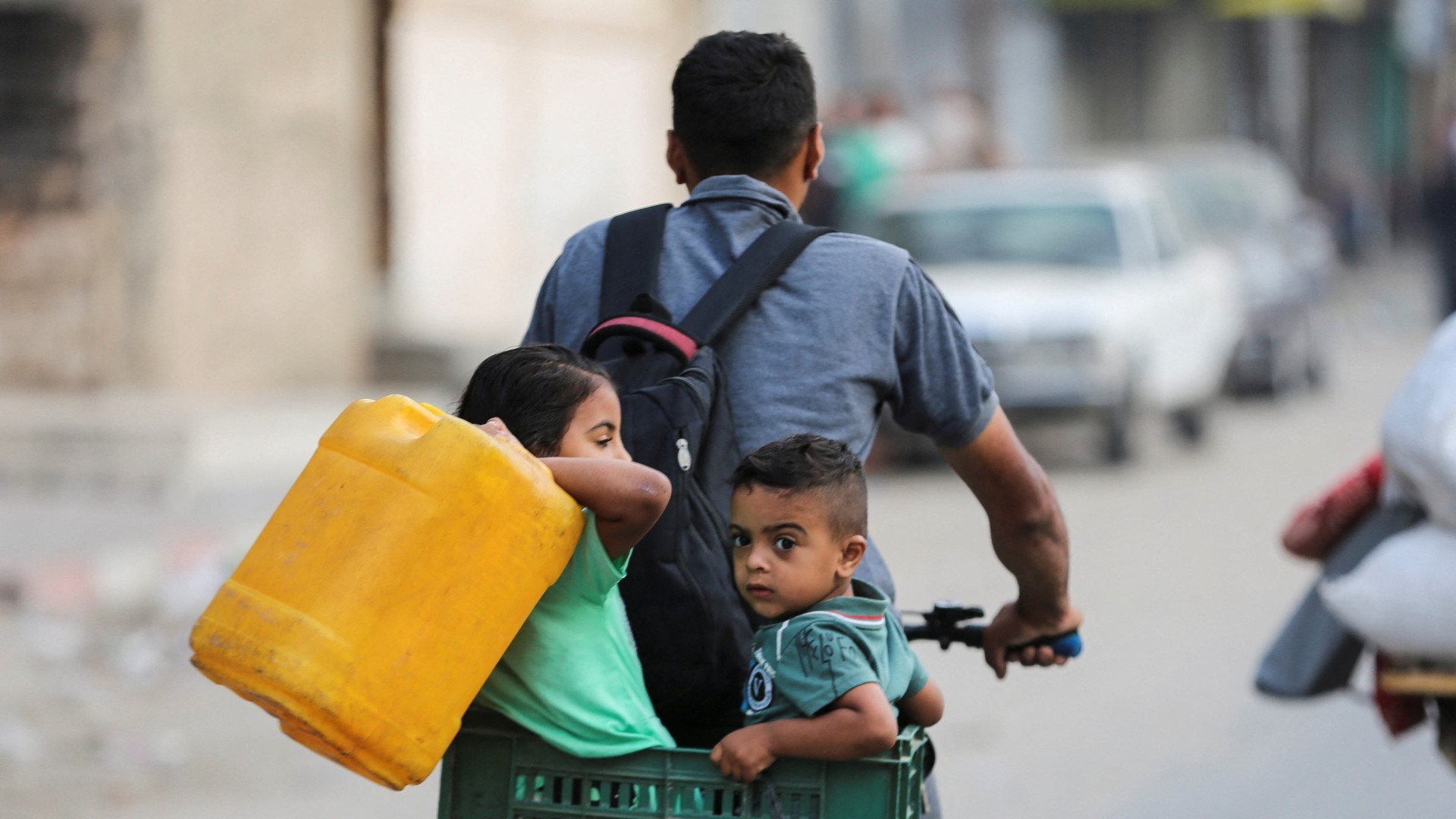
The Israeli killing of dozens of Palestinians in a displacement camp in Rafah has prompted a mass exodus from the southern Gaza city, with one of the areas they have been ordered to flee to also coming under attack.
Thousands of civilians set off from the early morning onwards, piling into cars, trucks, and carts pulled by horses and donkeys.
Horrified and fearful Palestinians fleeing Rafah, often to Khan Younis and Deir al-Balah, told Middle East Eye they were too traumatised to speak as they left the area they had been told would be safe from Israeli attacks.
On Sunday night, an Israeli airstrike slammed into a displacement camp, killing at least 45 people - mainly women and children - and setting a blaze that tore through their tents. The scenes sparked global outrage as images of mutilated and burnt children flooded out onto social media.
One Palestinian woman in Rafah told MEE she was shaken by the massacre and camp blaze.
New MEE newsletter: Jerusalem Dispatch
Sign up to get the latest insights and analysis on Israel-Palestine, alongside Turkey Unpacked and other MEE newsletters
"We wish that we had died and not seen what we saw," the woman, who wished to remain anonymous, told MEE.
The roads out of the city were suffering from extreme overcrowding, while the price of petrol continued to rise.
One of the places Palestinians have been ordered to flee to, al-Masawi, was attacked on Tuesday afternoon, leaving at least 21 dead. According to Reuters, at least 12 of those killed are women and those in the area were previously displaced from other areas of Gaza.
Meanwhile, Israeli forces reportedly moved into central Rafah. Israeli tanks were "stationed on the al-Awda roundabout in the centre of the city of Rafah", AFP reported.
Israel has been bombing the city with air strikes and tank fire for weeks, despite an order by the International Court of Justice (ICJ) on Friday to immediately halt its offensive in the city, which is crowded with displaced Palestinians.
First responders on Tuesday said Israeli strikes on Rafah had killed at least 16 Palestinians overnight in the Tel al-Sultan neighbourhood in northwest Rafah, the same area as Sunday's massacre.
More than 36,096 Palestinians have been killed and 81,136 wounded in Israeli attacks on Gaza since October, the Palestinian health ministry said on Tuesday.
In the last 24 hours, at least 46 people have been killed and 110 wounded, the ministry added.
The United Nations agency for Palestinian refugees (Unrwa) said around one million people have been forced to flee Rafah in the past three weeks.
"This happened with nowhere safe to go & amidst bombardments, lack of food & water, piles of waste & unsuitable living conditions," they said in a post on X.
'This horror must stop'
Several countries announced their formal recognition of a Palestinian state on Tuesday as international concern over the assault on Rafah has continued to mount.
The prime minister of Ireland, which recognised Palestine along with Norway and Spain on Tuesday, said Europe could be doing a “hell of a lot more” to exert pressure on Israel for a ceasefire in Gaza.
“If everybody says they want to see a cessation of violence - the United States says it, the European Union says it – it’s not enough to just say it,” Simon Harris said.
“We have to challenge ourselves: what more can we do to make it effective,” he said, adding that so far any steps towards a ceasefire have been “ineffective”.
British Foreign Minister David Cameron also said on Tuesday that an investigation by the Israeli army into Sunday's strikes that killed mostly women and children must be "swift, comprehensive and transparent".
"Deeply distressing scenes following the air strikes in Rafah this weekend," Cameron said on X.
Sunday's strike was set to be discussed at an emergency meeting of the UN Security Council.
UN chief Antonio Guterres said: "There is no safe place in Gaza. This horror must stop."
Middle East Eye delivers independent and unrivalled coverage and analysis of the Middle East, North Africa and beyond. To learn more about republishing this content and the associated fees, please fill out this form. More about MEE can be found here.


